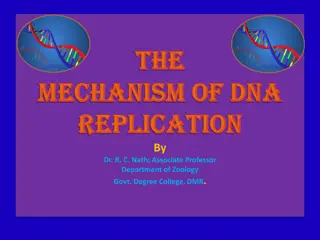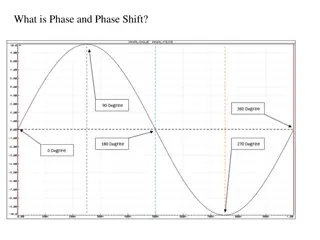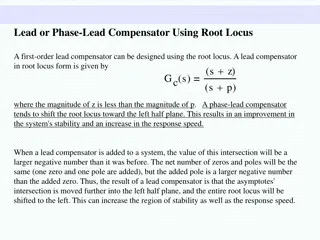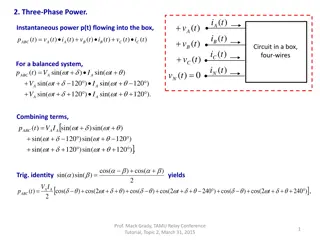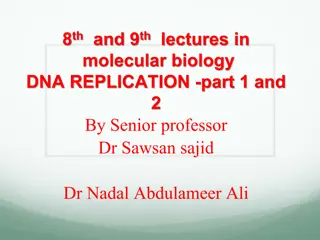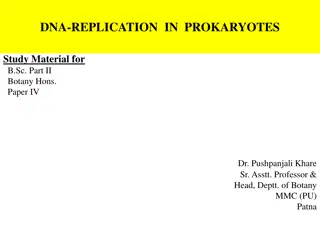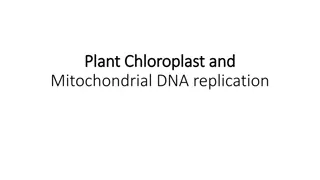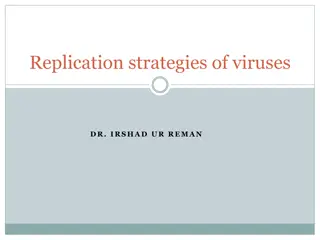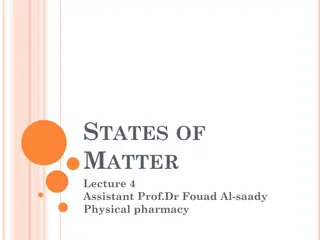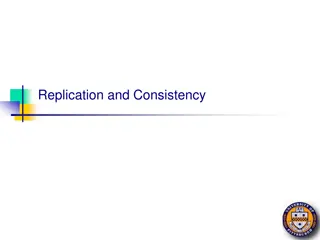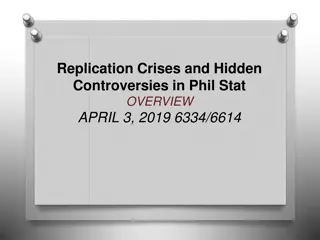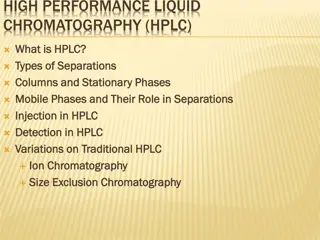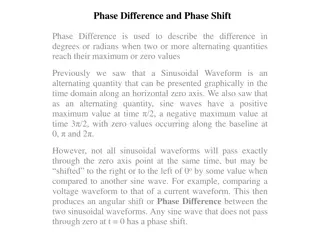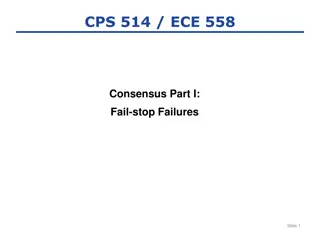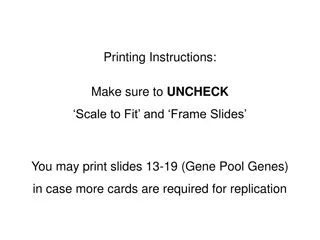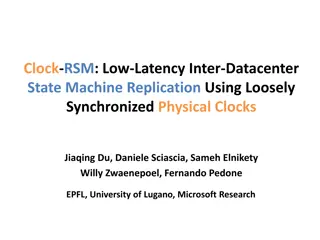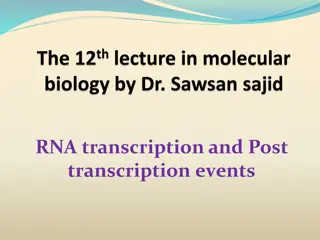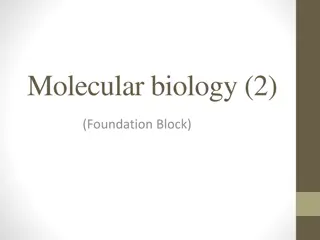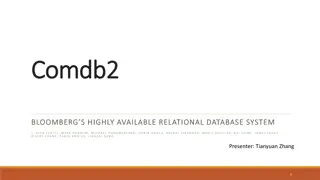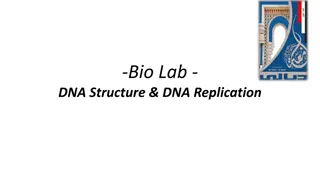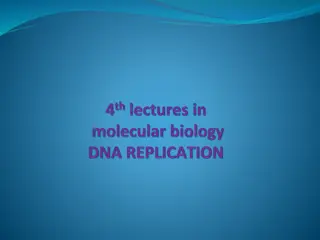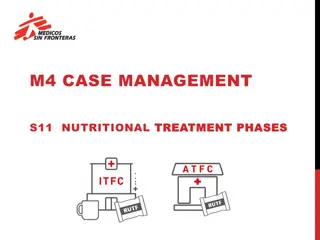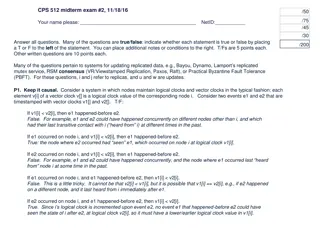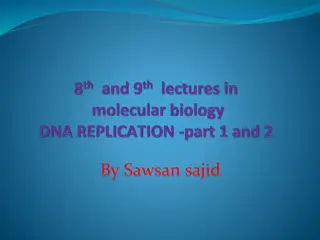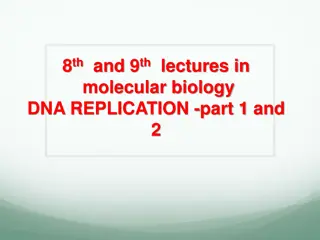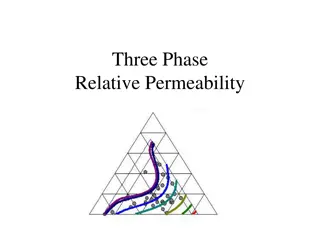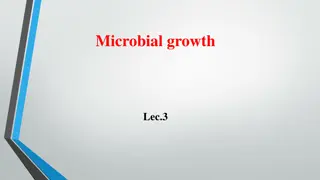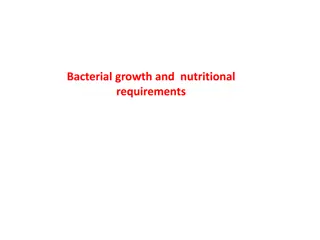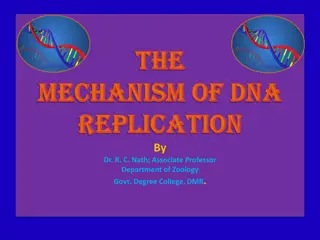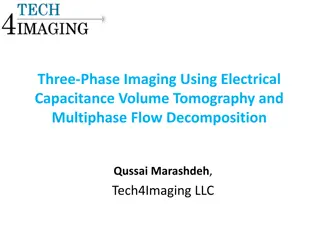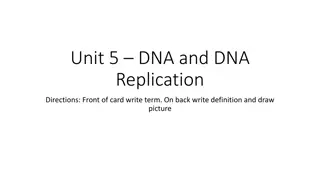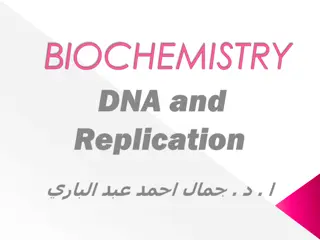Data Director Replication Best Practices
Explore best practices in data replication using methods like SQL, Web Services, and SaaS architecture. Learn about distribution, security, and central versions. Gain insights into replication processes and strategies.
1 views • 62 slides
Understanding the Mechanism of DNA Replication
Explore the intricate process of DNA replication, as elucidated by renowned scientists like Dr. R. C. Nath and Nobel laureate Arthur Kornberg. Delve into the essential enzymes, proteins, and basic rules involved in the replication of genetic material, shedding light on initiation, elongation, and te
3 views • 22 slides
Understanding RC Phase Shift Oscillators
Dive into the world of RC phase shift oscillators, exploring the concepts of phase and phase shift in electronic circuits. Learn how cascading RC networks can achieve specific phase shifts, the role of impedance, and the practical applications of RC feedback networks in oscillator circuits. Discover
0 views • 18 slides
Understanding Lead and Phase-Lead Compensators
Lead and Phase-Lead compensators play a crucial role in improving system stability and response speed. By using the root locus and frequency response methods, these compensators shift the root locus toward the left half-plane, adding positive phase over the frequency range. This leads to increased s
0 views • 16 slides
Understanding the Three Stages of Project Life Cycle
The project life cycle consists of three key stages: pre-investment phase, construction phase, and normalisation phase. The pre-investment phase involves objective formulation, demand forecasting, and cost-benefit analysis. The construction phase focuses on building project infrastructure and invest
1 views • 5 slides
Understanding Three-Phase Power Systems and Instantaneous Power Flow
This detailed content delves into three-phase power systems, analyzing instantaneous power flow, balanced circuits, and trigonometric calculations. It explores the concept of constant three-phase power and provides insights into the analogy of a piston engine with infinite cylinders. The data includ
2 views • 9 slides
Understanding DNA Replication Process: Insights and Mechanisms
DNA replication is a crucial biological process where identical copies of DNA molecules are produced for cell division. Initiated by specific proteins, it involves stages like initiation, elongation, and termination. Enzymes like helicases and DNA polymerase play key roles in forming replication for
0 views • 33 slides
Understanding DNA Replication in Prokaryotes for B.Sc. Botany Hons. Students
Study material on DNA replication in prokaryotes focusing on key concepts like semiconservative mode of replication, involvement of enzymes, different models for understanding replication, and the bidirectional nature of DNA replication in prokaryotes. The material covers the process steps including
0 views • 33 slides
Plant Mitochondrial and Chloroplast DNA Replication Mechanisms
Plant mitochondria and chloroplasts have intricate DNA replication processes. Mitochondrial DNA replication is independent of the plant cell cycle and is associated with specific proteins in nucleoid complexes. Plant mtDNA contains more genes than animal mtDNA, with a complex structure involving int
1 views • 16 slides
Viral Genome Replication Strategies and Mechanisms
Viruses utilize different replication strategies to ensure the replication of viral genomes, packaging into virions, and potentially altering the host cell's structure or function. These strategies are vital for the virus to operate effectively within the host cell's constraints. The replication pro
0 views • 15 slides
Understanding Phase Equilibria in Physical Pharmacy
Delve into the complexities of states of matter, phase equilibria, and the phase rule as explained by Assistant Prof. Dr. Fouad Al-saady in the context of physical pharmacy. Learn about phase definitions, phases in different systems, and examples illustrating phase differentiation in various substan
0 views • 22 slides
Understanding Replication and Consistency in Computer Systems
Explore the concepts of replication and consistency in computer systems, discussing the benefits and challenges of using replicas for reliability, performance, and scalability. Learn about object replication problems and solutions, and the importance of maintaining consistency in shared data access.
1 views • 26 slides
Phase 1 Phonics: Developing Early Listening and Speaking Skills
Phase 1 Phonics, the initial stage of Letters and Sounds, focuses on enhancing children's speaking and listening abilities to prepare them for phonics work in Phase 2. This phase emphasizes tuning in to sounds, listening and remembering sounds, and talking about sounds through various activities des
3 views • 17 slides
Addressing Replication Crises and Hidden Controversies in Phil.Stat
High-profile failures of replication have sparked debates on reforming statistical methods in science. Hidden controversies include Statistics Wars, Replication Paradoxes, and underlying assumptions. Significance tests and p-values play crucial roles, but proper interpretation is essential to avoid
0 views • 48 slides
Understanding Poly Phase Induction Motor Construction
An induction motor is comprised of a stator and rotor, with the stator featuring a 3-phase winding fed from a 3-phase supply. The rotor comes in two types - squirrel-cage and phase wound. The squirrel-cage rotor consists of heavy bars tightly pressed on the shaft, while the phase wound rotor has a 3
0 views • 47 slides
An Overview of High Performance Liquid Chromatography (HPLC)
High Performance Liquid Chromatography (HPLC) is a powerful analytical technique used for separating and identifying compounds in a mixture. It involves a mobile phase and a stationary phase to achieve separation based on different physicochemical properties. The mobile phase plays a crucial role in
0 views • 20 slides
Understanding the Phase Rule in Physical Pharmacy: Two Component Systems and Equilibrium Phases
The Phase Rule is essential in determining the state of a system based on components and phases. This study explores two-component systems in physical pharmacy, illustrating miscibility behaviors and equilibrium phases through diagrams and explanations. Understanding binodal curves, tie lines, and t
0 views • 12 slides
Understanding Phase Difference and Phase Shift in Sinusoidal Waveforms
Phase difference and phase shift describe the angular displacement of sinusoidal waveforms in degrees or radians. These concepts are crucial in analyzing the relationship between alternating quantities such as voltage and current. The phase angle determines the shift of a waveform along the horizont
1 views • 26 slides
Raft Consensus Algorithm Overview
Raft is a consensus algorithm designed for fault-tolerant replication of logs in distributed systems. It ensures that multiple servers maintain identical states for fault tolerance in various services like file systems, databases, and key-value stores. Raft employs a leader-based approach where one
0 views • 34 slides
Gene Pool Genes - Resource Gathering in Replication Phase
Essential genes required for nutrient intake during the replication phase to prevent elimination of your species. Loss of these genes results in dire consequences for survival. Follow the printing instructions for additional cards if needed.
0 views • 19 slides
Low-Latency Inter-Datacenter State Machine Replication Using Clock-RSM
Clock-RSM introduces a low-latency approach to inter-datacenter state machine replication by utilizing loosely synchronized physical clocks. This method ensures strong consistency, fault tolerance, and fast failover in a geo-replication environment. By overlapping ordering and replication using phys
0 views • 29 slides
Differences Between DNA Replication and RNA Transcription
This content discusses the general variances between DNA replication and RNA transcription, highlighting their purposes, processes, enzymes involved, timing, and more. It delves into the initiation, template, and involved areas of replication and transcription, as well as key DNA regions like promot
0 views • 24 slides
Understanding DNA Replication and Genetic Transcription
Explore the fundamental concepts of molecular biology focusing on DNA replication, transcription of genetic material into mRNA, and translation into functional proteins. Learn about the semiconservative nature of Eukaryotic DNA replication, the proteins involved, steps in the replication process, an
0 views • 25 slides
Understanding DNA Replication: Models and Process Overview
DNA replication is a fundamental process where the DNA molecule unwinds and two new daughter strands are synthesized based on base-pairing rules. Three models - conservative, semiconservative, and dispersive - explain how DNA replication occurs, with each model having specific characteristics. Enzym
0 views • 22 slides
Highly Available Relational Database System - Key Components and Design Choices
A comprehensive overview of a highly available relational database system, focusing on scalability, concurrency control options, data replication, availability strategies, failure handling, and full transactional support. The content discusses essential elements such as optimistic concurrency contro
0 views • 21 slides
Understanding DNA Structure and Replication
Discover the key aspects of DNA, including its structure as a nucleic acid polymer composed of nucleotides and the process of DNA replication. Learn about the double helix structure, base pairing rules, and the semi-conservative replication mechanism. Explore how DNA is synthesized in a 5 to 3 direc
0 views • 18 slides
Understanding DNA Replication Process in Living Organisms
DNA replication is a fundamental biological process where an original DNA molecule produces two identical copies. This process involves initiation, elongation, and termination stages, utilizing replicator and initiator proteins. The DNA is unwound and replicated with the help of enzymes like helicas
0 views • 16 slides
Understanding Nutritional Treatment Phases in Pediatric Malnutrition
This session covers the different phases of nutritional treatment in pediatric malnutrition programs, focusing on objectives, specifics, and criteria for transitioning between phases. An illustrative case of Annika, a 3-year-old in the Transition Phase, is provided for practical application and unde
0 views • 5 slides
Causal Relationships in Replication Systems
In this piece, we explore various aspects of causal relationships within replication systems such as the significance of logical and vector clocks, updates propagation in systems like Bayou, and commitment to learning order in asynchronous replication systems. Through analyzing scenarios and stateme
0 views • 8 slides
Understanding DNA Replication: From Basics to Lab Synthesis
DNA replication is a fundamental process in all living organisms, essential for biological inheritance. This comprehensive guide explores the stages of DNA replication, highlighting key experiments and differences between prokaryotic and eukaryotic replication. Additionally, it delves into the revol
1 views • 31 slides
Understanding DNA Replication: Process and Significance
DNA replication is a fundamental process in all living organisms, crucial for genetic inheritance. This article covers the stages of DNA replication, including initiation, elongation, and termination. It discusses important concepts such as semi-conservative replication, proofreading mechanisms, and
0 views • 29 slides
Understanding Three-Phase Relative Permeabilities in Reservoir Engineering
Explore the application, correlations, and traditional assumptions of three-phase relative permeabilities in reservoir engineering. Learn about saturation-dependencies, occupancy models, and the challenges of measuring three-phase relative permeabilities. Discover how to calculate three-phase permea
0 views • 14 slides
Understanding Microbial Growth: Phases and Dynamics
Microbial growth is defined as an increase in cellular constituents leading to a rise in microorganism size or population. The growth of bacterial cells is characterized by distinct phases such as lag phase and exponential phase. During the lag phase, cells are synthesizing new components before div
0 views • 21 slides
Understanding Bacterial Growth and Nutritional Requirements
Bacterial growth involves processes like binary fission, exponential phase, and stationary phase. Factors influencing growth include nutrient availability, oxygen levels, and toxic waste accumulation. Lag phase precedes exponential growth, where cells prepare for division. Stationary phase occurs wh
0 views • 11 slides
Understanding DNA Structure, Replication, and Proofreading
Exploring the intricate world of DNA, this module delves into the structure of DNA, highlighting nucleotides, nitrogenous bases, and the double helix. It emphasizes how DNA stores genetic information in genes and undergoes replication through a semi-conservative model. The process of DNA replication
0 views • 13 slides
Understanding DNA Replication: Concepts and Mechanisms Explored
Delve into the intricate process of DNA replication, as elucidated by Dr. R. C. Nath and other renowned scientists. Explore the fundamental principles such as semi-conservative replication, origin of replication, and the roles of essential enzymes like DNA polymerase. Uncover the core proteins invol
0 views • 22 slides
Advanced Imaging Techniques for Three-Phase Flows in Reactor Systems
Gas-liquid-solid reactor systems require advanced measuring techniques to understand complex three-phase flows. Multi-Phase Flow Decomposition using Electrical Capacitance Volume Tomography (ECVT) offers innovative solutions for visualizing and quantifying phase hold-up distributions and dynamic cha
0 views • 17 slides
Understanding DNA and DNA Replication: Key Concepts with Visual Aids
Explore essential terms related to DNA and DNA replication, including chromosomes, genes, nucleotides, double helix structure, hydrogen bonds, and more. Discover the process of DNA replication, involving enzymes like DNA polymerase and helicase, and the concept of semi-conservative replication. Rein
0 views • 13 slides
Insights into DNA Replication and Chromosome Structure
DNA replication is a fundamental process vital for the transmission of genetic information. Chromosomes, composed of DNA-protein complexes, store genetic information, and replication involves the synthesis of new DNA molecules. Enzymes play crucial roles in DNA synthesis, and in E. coli cells, repli
0 views • 16 slides
Moving to the Design Phase: Feasibility Phase Checklist
The transition requirements for moving to the Design Phase include the Water Fund being deemed feasible, resources committed for design, and a formal decision made. The Feasibility Phase Checklist covers governance, science, finance, implementation, and communications aspects. The high-level action
0 views • 4 slides

